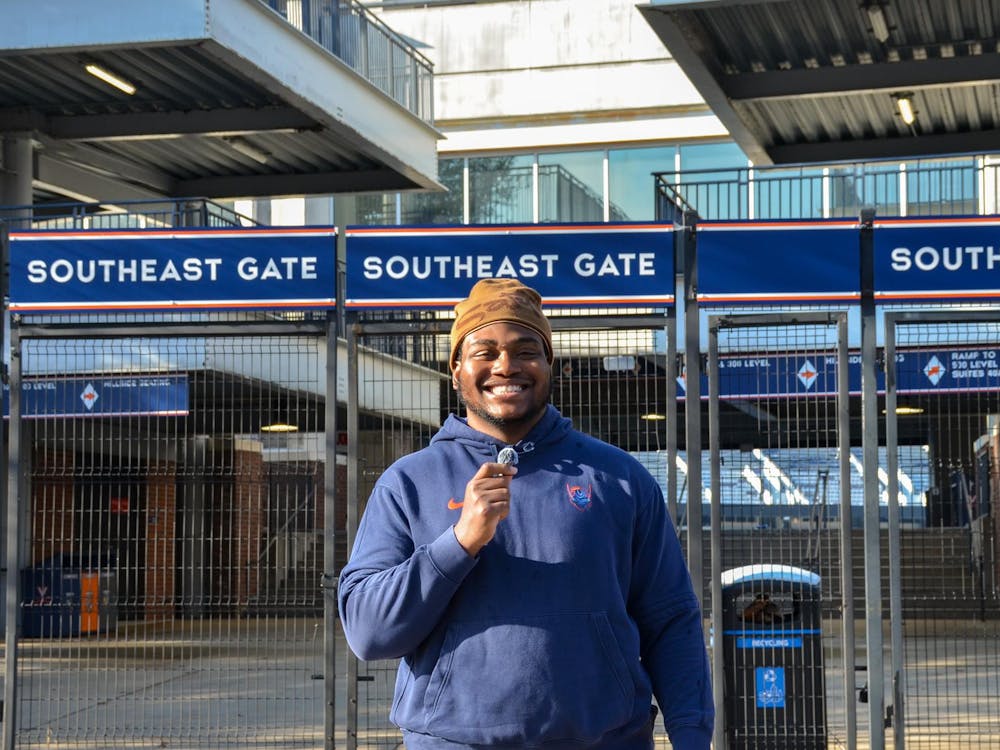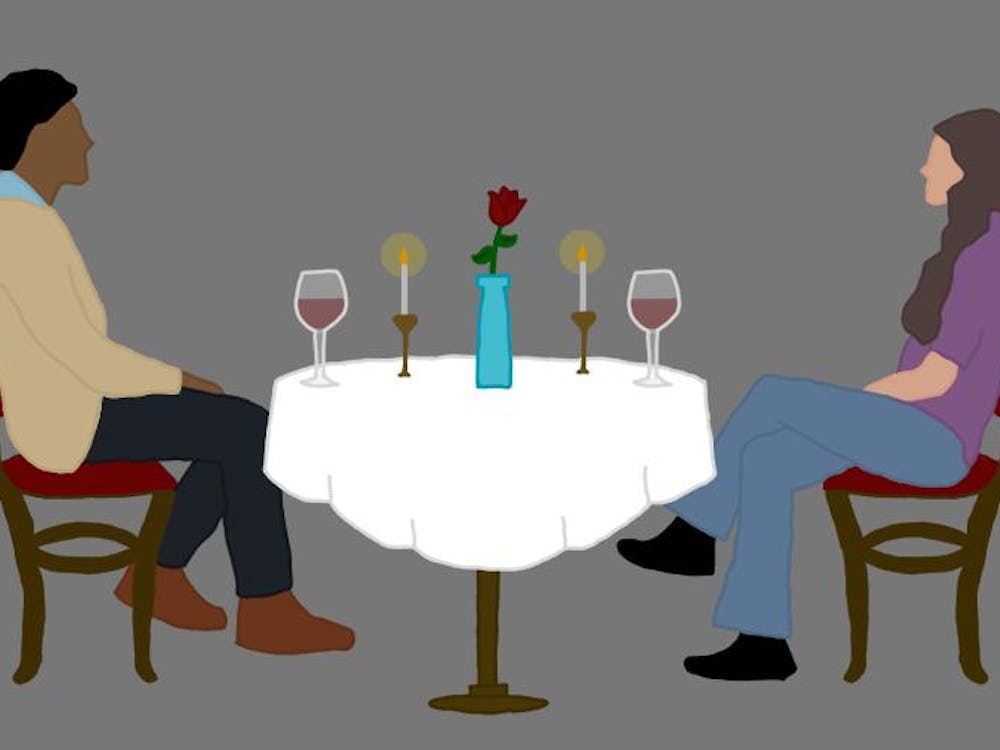Maybe you had enough of babysitting when you graduated from high school, but some University students can't get enough. In fact, they've even taken it up a notch, working full time at local camps. Think it's no work and all play? Guess again. The life of a camp counselor can be demanding and intense, but it also has its benefits.
Among the many local camps, the University's Summer Enrichment Program is a favorite for University students. Twenty of the overnight academic camp's 32 counselors are Wahoos. Among them are rising third-year College student Beckie Dashiell and rising third-year Engineering student Drew Maier, who are both counselors for fifth through eighth graders.
This is no run-of-the-mill camp, though. The campers, according to Dashiell and Maier, have to fill out an application including multiple test sections and essays before they are allowed to enroll.
"It's like a mini college application," Dashiell said.
The reason for the high standards is the camp's academic focus.
"The kids have 'real' teachers for their academic classes in the mornings, and they have afternoon seminars," Dashiell said.
Additionally, the counselors teach a two-day course called a special topic, "about anything that interests us," according to Dashiell, who taught a course on espionage.
Maier's special topic was about computers, despite what its title, "The Data-ing Game," might suggest.
"It was boring," Maier said. "A lot of kids fell asleep. It's really hard to know how to make the kids focus -- they have no attention span."
Maier said working at the overnight camp is similar to being a resident advisor in dorms. Unfortunately for the counselors, this means living without air conditioning during the hottest weeks of the year. Maier said fans are a necessity.
"There is air-conditioning in the downstairs lounges, but not in the suites," Maier explained.
The SEP counselors also have different kinds of responsibilities living with the campers rather than first-year students.
"The counselor gets the fishbowl room, and there are eight kids with us in the suite," he said. "When they aren't in class, we are pretty much in charge of them. It's almost like 24-hour babysitting."
Dashiell said besides the special topic, counselors also lead evening activities and recreation, making their daily schedules "pretty intense." Their day starts around 7 a.m. and can end at one or two in the morning, with approximately the same schedule every day.
The combination of hectic hours and the expectation that counselors will remain at camp most of the time means little interaction with non-counselor friends in Charlottesville. They have only one free day and one free night per week in addition to two days off between each of the three sections.
"That's why when people ask if I'm in Charlottesville this summer I say 'yeah ... but not really,'" Maier said.
Still, Dashiell and Maier said they do not mind the limited free time because they get to know and hang out with the other counselors and because some camp activities can be pretty entertaining. Dashiell said her favorite part of working at the camp is the parties the SEP has on Saturday nights in Webb lounge for their campers, in which the counselors dress up in costumes and "look like idiots."
"We dress up really weird to make the kids feel better," Maier said.
The job of the counselors on these nights is to relieve tension among the kids and try to combat any social awkwardness.
Despite the many skills counselors employ in daily camp activities, Dashiell and Maier said the application process was not too demanding. They each had to interview and go through a week-long training session.
Not all University counselors decided to brave an all-night camp. Another popular local camp, the Cavalier Day Camp, is stationed at Slaughter Gymnasium and runs during the morning to late afternoon.
Recent College graduate Alex Welsh works for CDC, where the vast majority of the 18 counselors are University students. Welsh said the camps serves Charlottesville children from ages six to 10.
"It's really cheap, from what I understand," Welsh said. "So it's open to pretty much anyone."
The camp is also open to counselors with a broad range of experience. Welsh said experience as a camp counselor is preferred, but he was asked by a friend to join late because more male counselors were needed.
Regular CDC activities, such as swimming and arts and crafts are supplemented by weekly camp-wide field trips to places including the ice park or a lake and additional trips planned by counselors.
"We have a lot of discretion," Welsh said.
One difference Welsh noted between the day camp and overnight camps is the amount of interaction with parents.
"I think it's more difficult [at day camps] because we have to interact with parents on a day-to-day basis," he said. "Every day some kid gets hurt or something, and we have to write a report on everything from a sprained ankle to they bumped their head or got a cut. We have to write it down because they are going to go home and their parents are going to see it. The overnight camps don't really have to bother."
Welsh said his favorite part of the camp is his coworkers.
"They are basically hired clowns -- everyone there is hilarious," he said.
Another aspect of the camp Welsh enjoys is that the counselors do not have to dress formally.
"Compared to an office job, it probably doesn't pay as well, but I don't have to dress up, which is a big thing to me," he said. "And I don't have to sit at a desk all day; I get to run around and play with kids."
Welsh admitted that mornings can be a little rough, and the job can be physically taxing.
"I get home and I have to take a nap," he said. "And some days I can't go work out because I am so tired."
Maier also noted some differences between working at a camp and in an office. In addition to a smaller salary, he said some work involved may be unfamiliar to the counselors.
"In an office job, you have an assignment and you are following orders," Maier said. "This job is like ... you never know what the kids are going to do next. They don't always listen, so if you tell them not to do something, then literally five seconds later they will do it again."
Discipline certainly can pose challenges, but counselors find unique ways to deal with troublemakers.
"You can embarrass them sometimes," Maier said. "Like if they are acting up, I will make them hold my hand on the walk home."
With about a month until they return to classes, the counselors seemed content with their summer jobs.
"It's exhausting," Dashiell said. "But it's fun. The kids can make it worthwhile."






